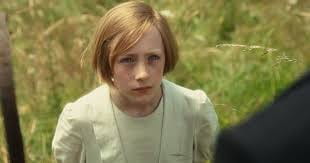I have to be completely honest here. I started reading this book sitting at Ocean Isle Beach with my little sister. I started reading the first few pages reading about an egotistical, mis-behaved child and it was so interesting and eventful…until I fell asleep. BEST nap I’ve ever taken by the way. But then I started to read again.. and it got really good. So much so that my eyes were practically touching the spine. I was asleep again. If you can’t tell, I hated Briony’s play. I hate Briony. I have no sympathy for her methods of atonement. In fact she could have done more… but that’s besides the point!
Anyhow.. now to the halfway intelligent part!
My relationship with this book clearly started off slow. It wasn’t until I had gotten to the fountain scene when I ultimately started to enjoy this book.
McEwan does an interesting job of displaying the personalities of each character through their environment and role within the family. Briony has a much different outlook on life than Cecilia. Although they have lived in the same house with the same set of parents, they play two drastic roles within the household.
To illustrate, Cecilia is constantly playing the role of the mother. She seems to envy those her age who have a perfect home-life, and are marrying the richest man. However, it would be no shock if Cecilia only envied true love, due to the fact that she never saw that through her parents. Although it’s evident that Briony bases her life upon stories in which she knows the prince will always save the princess, is it reasonable to question whether Cecilia has fantasies about what her perfect life would look like had she not been forced to take on a motherly role? Perhaps she feels the need to overcompensate in regards to love due to how her father has treated her mother. While Briony is far too young to understand the full truth of what her father is doing and where he is, Cecilia knows all too well. McEwan demonstrates Cecilia’s potential fear of this through her pure love and need for Robbie.
Cecilia’s mother is ill and her father is away, most likely with other women. McEwan displays Cecilia’s need for Robbie, in the same way that she is not in the position to throw away true love in fear that she will end up like her parents.
On the other hand, the devil child longs for approval and attention because she rarely sees the presence of an adult figure who has her best intentions at heart. She feels as though she must gain her substance in life through stories because no one has taught her to seek the present. Therefore she implements her delusion into the lives of others, therefore ruining them.
While Cecilia stepped up and attempted to maintain the motherly figure to the best of her ability, she is not Briony’s mother. Therefore she does not have certain instincts to build Briony into who she so desperately needs to be. The lack of guidance makes her the catalyst for mass destruction. #nosympathy 😀
Also, if Briony wanted the enemy to bomb so badly to prevent Paul and Lola’s wedding, why couldn’t she have been in the Balham tube station….
RIP Cecilia… I love you queen. Fly high with Robbie.
